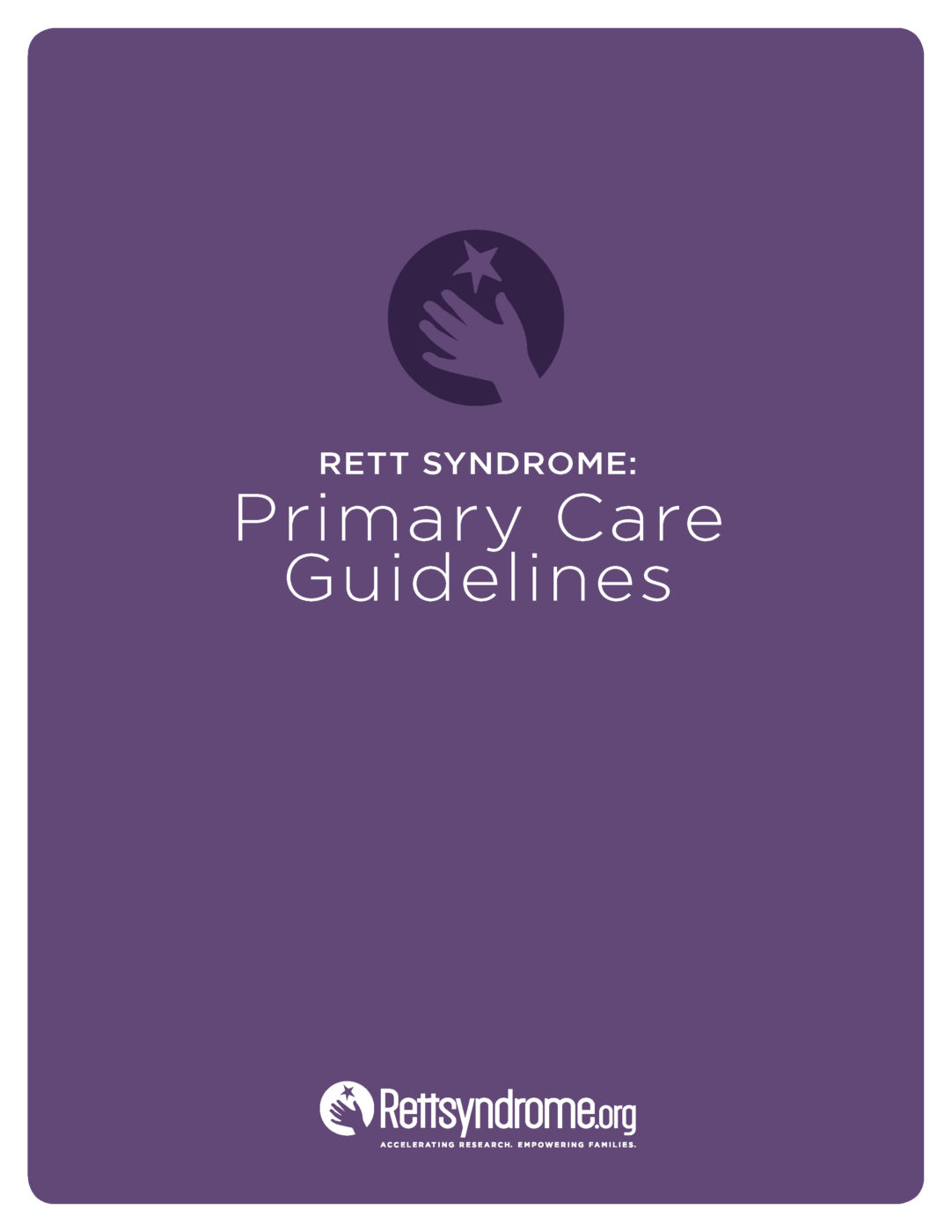By Samantha Brant, Family & Community Engagement Manager, Mom to Macy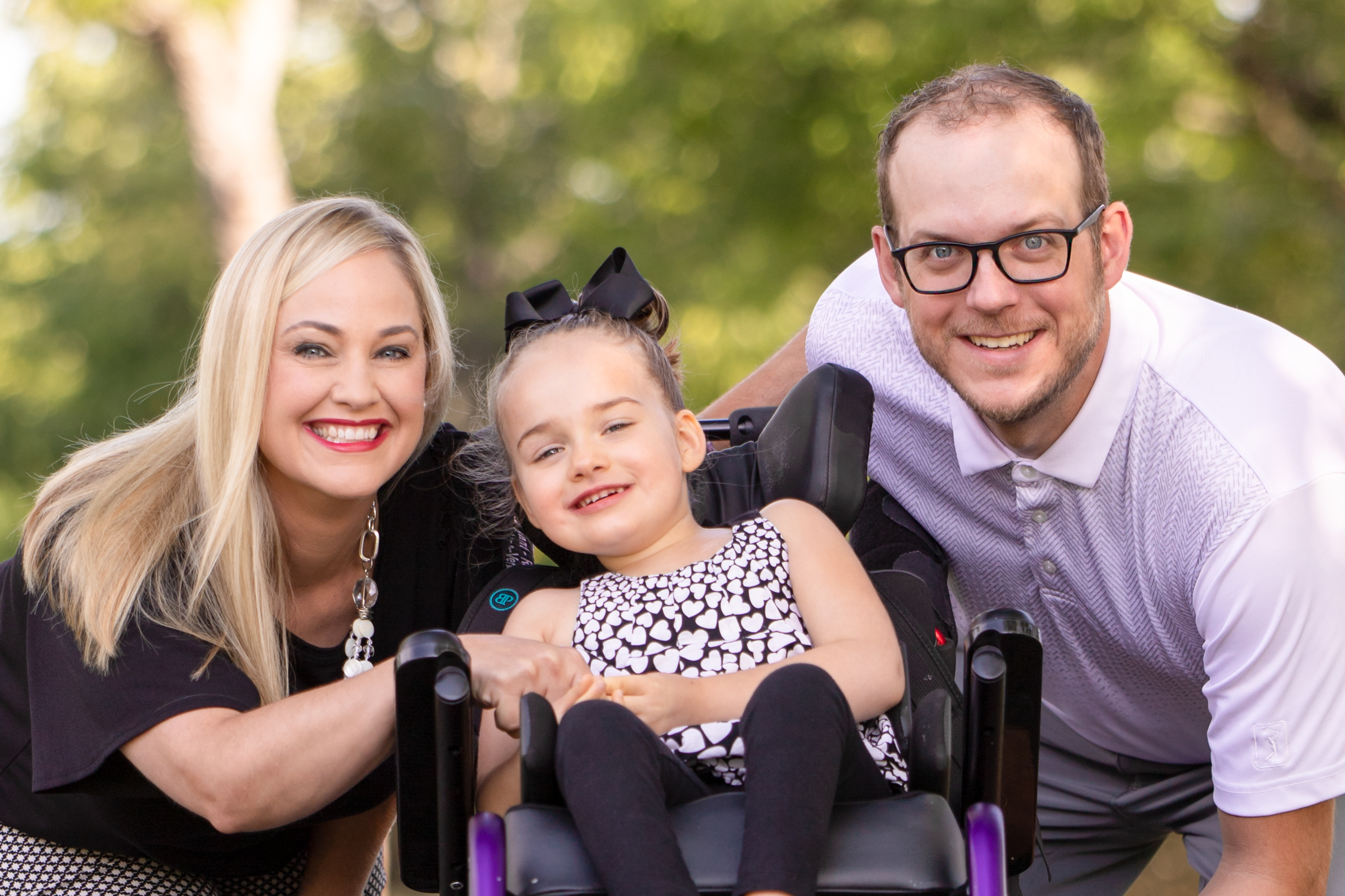
When most families find out their child has Rett syndrome, it’s the first time they’ve ever heard of the disease. Often they’re overwhelmed with emotions and fear and questions as they try to figure out what to do next, and many families search the internet looking for answers.
That’s usually where my relationship with them begins. They find Rettsyndrome.org and register on our “Newly Diagnosed” webpage. When I receive their registration, I immediately connect them with resources and a community that’s ready to embrace them.
I remember how I felt when my daughter, Macy, was diagnosed at 17 months, so I know they’re probably feeling scared and alone. I take their hand and tell them it’s going to be ok. Most parents are grateful, but some are not ready. And that’s okay. We’ll be there — no matter where they are in this journey — with resources, information, and a community they can easily connect to.
When I first reach out to a family with a new diagnosis, I recommend they visit the closest Rett syndrome clinic so that their child can get a full evaluation and begin finding the best strategies, devices, and caregivers. I also connect them to valuable tools — such as the First 100 Days Pathway, the Rett Syndrome Primary Care Guidelines, our Rett Syndrome Handbook, and the newly released Rett Syndrome Communication Guidelines — to help them prepare for that visit by familiarizing themselves with what to expect.
I also give them the contact information for their family empowerment state representative — a person who has experienced Rett syndrome personally and can provide a listening ear and specific recommendations to resources in their home state. These volunteers are a wealth of information and are energized by helping families find the best care and community for their children. The range of their backgrounds — caregivers, fathers, grandmothers, mothers, and others — provides a robust wealth of knowledge to families. They’re available by phone or email (see www.rettsyndrome.org/ for-families/connect), and they position themselves in their communities and online as leaders. Each state has their own Facebook group as well.
In addition, the Family Advisory Council supports these state representatives, oversees the entire program, and makes recommendations on what the Rett community needs. This allows our state representative program to adjust to the changing needs of our Rett community.
I’m so grateful for all the volunteers in our Rett community because we know that wherever a family is on their Rett journey, they will always have access to the best, most reliable, up-to-date information and resources, as well as a much-needed listening ear. And as always, any family can reach out directly to me; if I’m not able to answer your questions, I assure you I will get you connected with someone who is.
Families usually have several urgent questions following a diagnosis:
• “What should I do next?”
• “How will my child communicate with me?”
• “Why should I go to a clinic?”
• “What do I ask when I go to a clinic?”
Contact Samantha Brant, RSO Family & Community Engagement Manager at [email protected].
NEED A RESOURCE?
HERE’S A LIST OF SOME OF WHAT WE HAVE AVAILABLE:
State Resources Page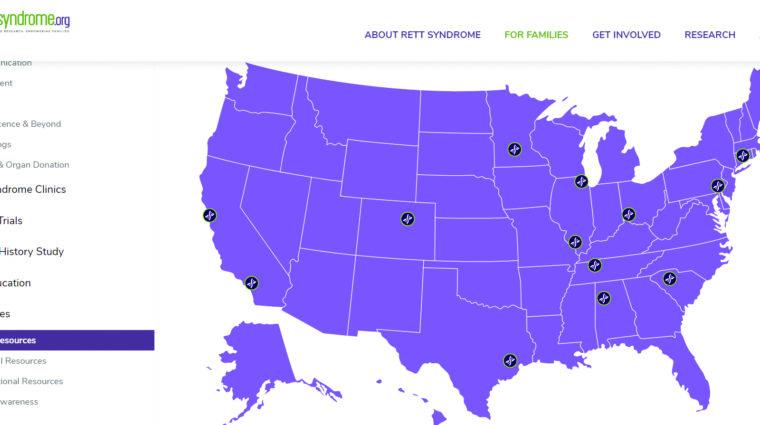
This interactive online map provides a list of family empowerment representatives, treatment and resource centers, state agencies and resources, and parent recommended resources.
 Rett Syndrome Handbook
Rett Syndrome Handbook
This comprehensive book covers everything from family issues to common problems to therapeutic avenues and more.
Primary Care Guidelines
This is an invaluable tool to use for doctors’ visits so that areas of assessment and assessment details are addressed in a timely and consistent manner. Request yours.
 Monthly Webcasts
Monthly Webcasts
These monthly webcasts on various Rett syndrome related topics include Newly Diagnosed, Epilepsy, Nutrition, Sleep, and more!
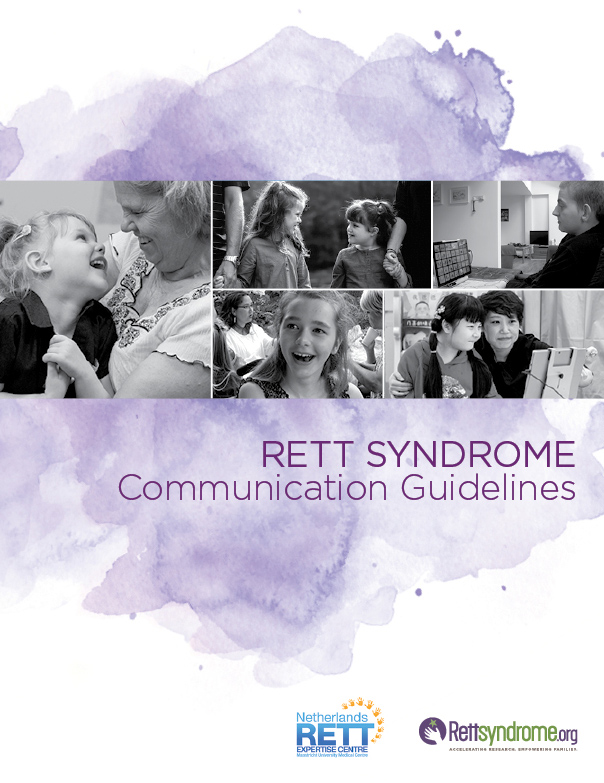 Communications Guidelines
Communications Guidelines
The first book of its kind, it gives parents, caregivers, communication professionals, therapists, school educators — in short, anyone who interacts or provides care to your child with Rett syndrome — access to the best information and strategies to facilitate your child’s communication.
Individual Education Plans (IEP)
This resource includes IEP examples from preschool age to high school, webinars on how to build an effective team, and suggestions on how to make the plan inclusive.
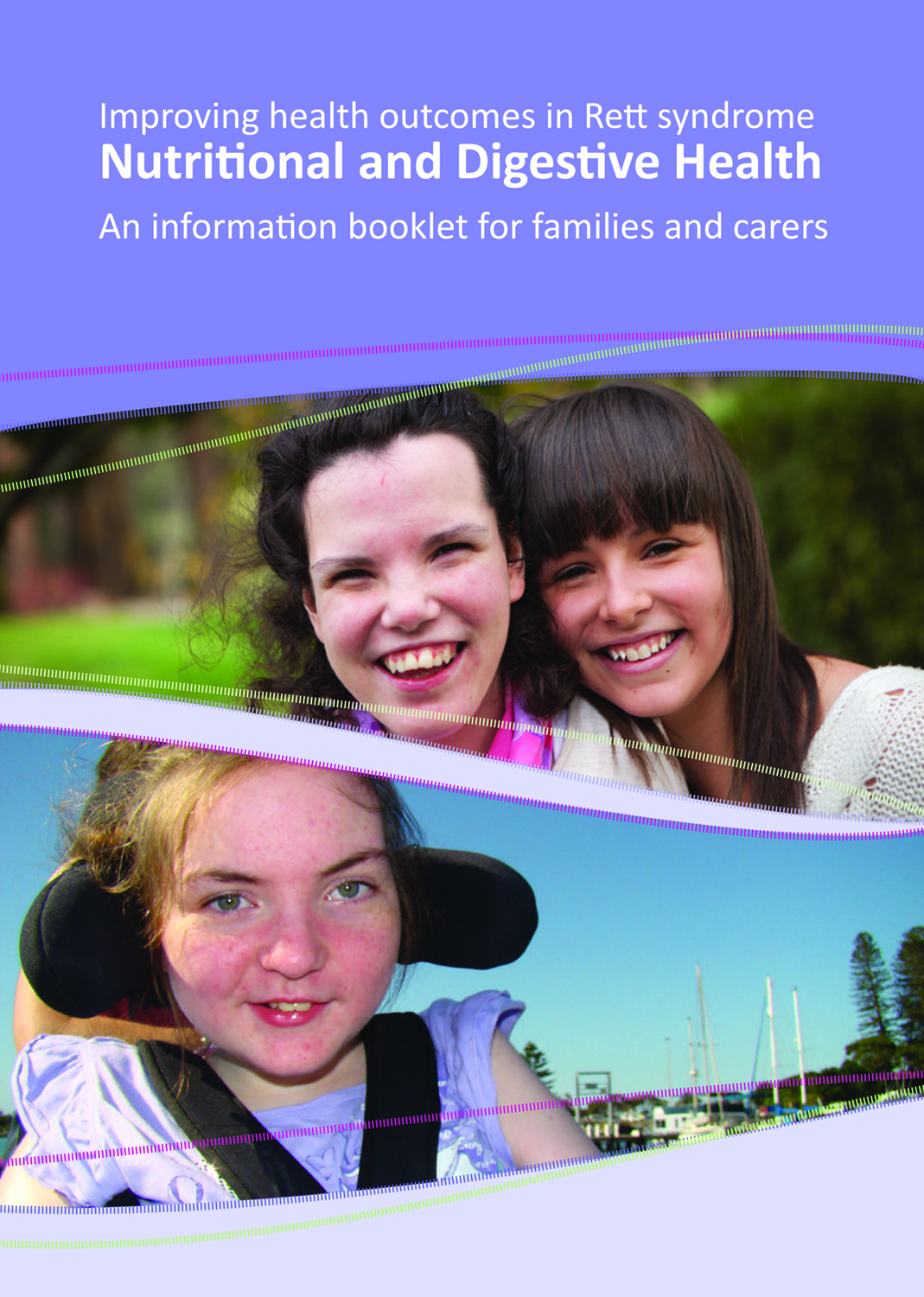 Nutritional Guide
Nutritional Guide
This beneficial tool is designed to help improve the health outcomes in Rett syndrome by learning about nutritional options, the potential difficulties that may come with the diagnosis, and resources to make the best choices for your child.
“Tonight… I’m finally processing Hayden’s diagnosis and trying to work through all of the initial appointments for therapies and getting to a Rett Clinic and overwhelming doesn’t begin to describe it. It is also hard because Hayden is part of the 20% of kiddos who are atypical, making it even harder to get everything in order. This book [provided by Rettsyndrome.org], now that I’m digging in, is like a roadmap of Rett and becoming very helpful.”
~ Amie, parent
